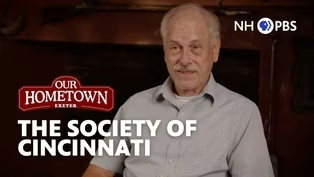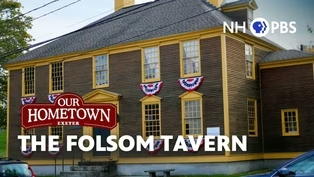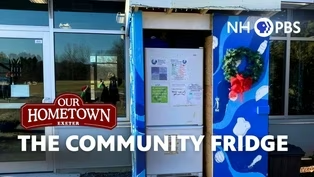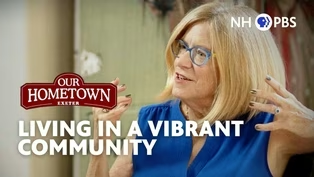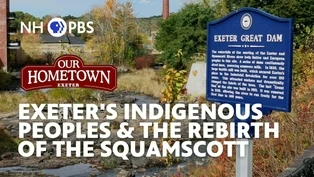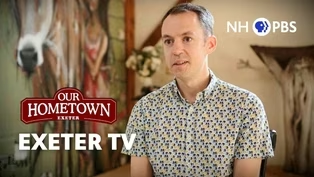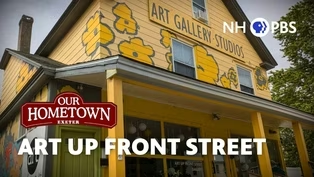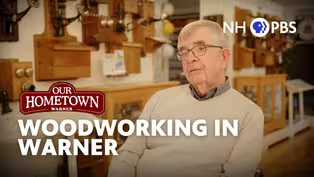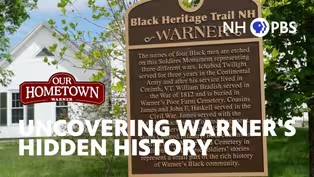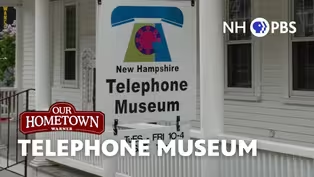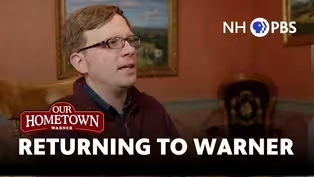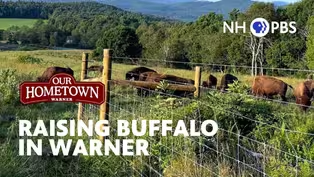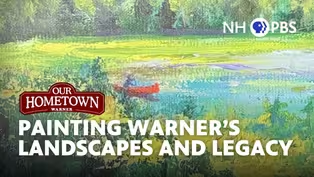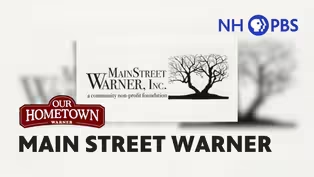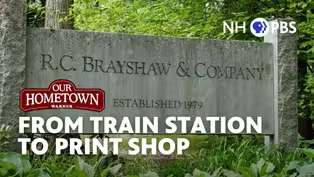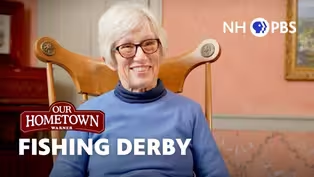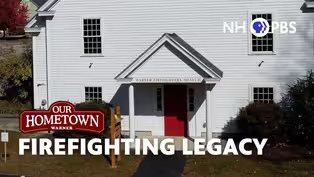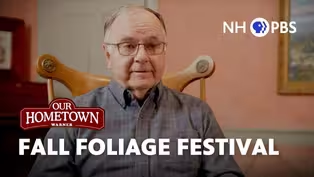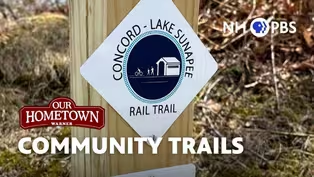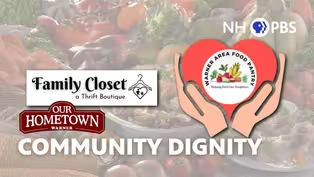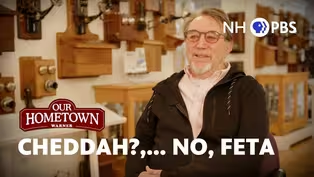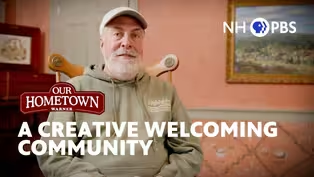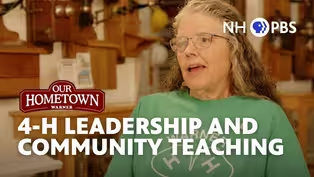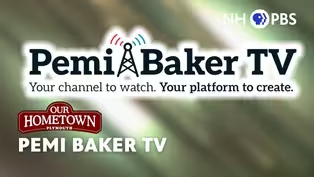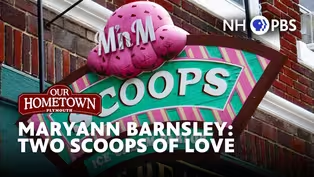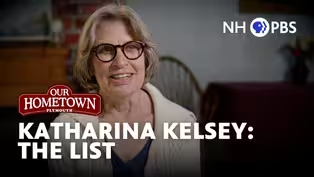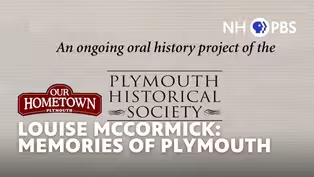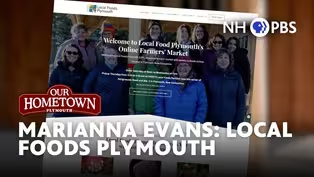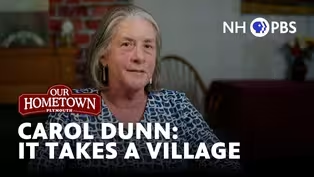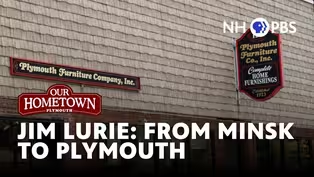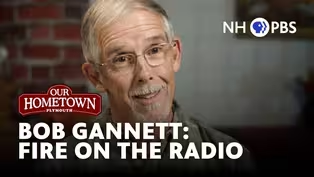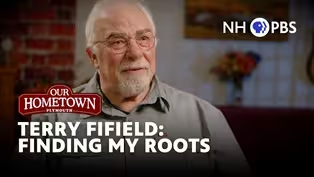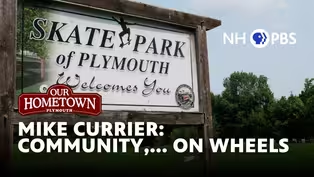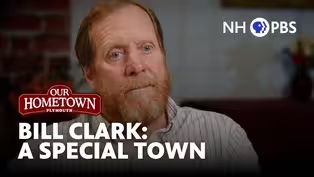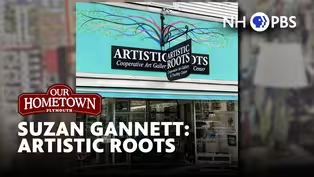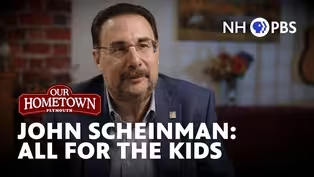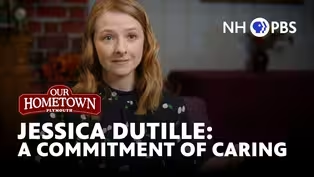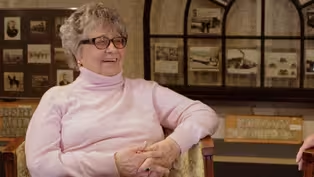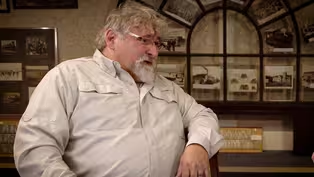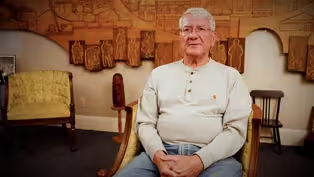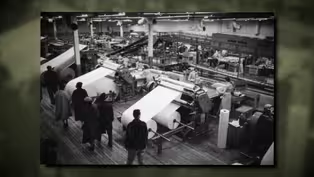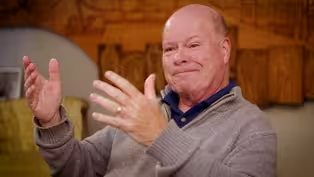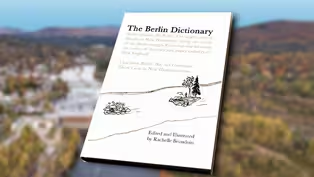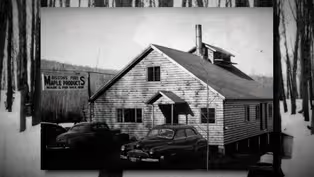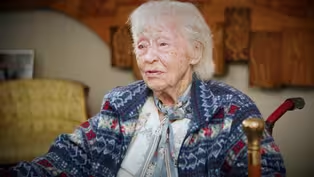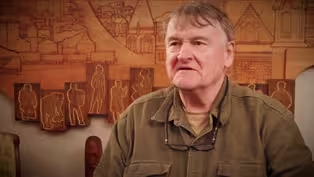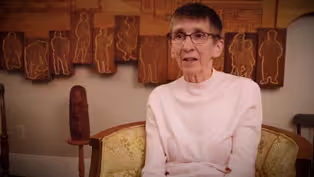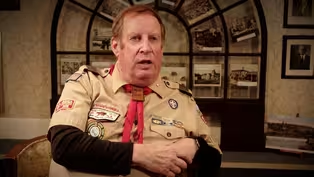Berlin | Bob Morin
Clip | 6m 12sVideo has Closed Captions
speaks about growing up in Berlin, his paper route, and a creative way to make some money.
speaks about growing up in Berlin, his paper route, and a creative way to make some money when he was a kid.
Problems playing video? | Closed Captioning Feedback
Problems playing video? | Closed Captioning Feedback
Berlin | Bob Morin
Clip | 6m 12sVideo has Closed Captions
speaks about growing up in Berlin, his paper route, and a creative way to make some money when he was a kid.
Problems playing video? | Closed Captioning Feedback
How to Watch
is available to stream on pbs.org and the free PBS App, available on iPhone, Apple TV, Android TV, Android smartphones, Amazon Fire TV, Amazon Fire Tablet, Roku, Samsung Smart TV, and Vizio.
I love the way you speak about the different sections because it really Berlin was a lot of different neighborhoods that were quite distinctive.
Right.
And so the neighborhood you lived in was known as the French, French-Canadian, the French Canadian side.
This side was mostly all French.
And in that section on Goebel Street by the foundry there was Germantown they call Germantown then you had the, the Norwegian that lived up on Riverside Drive in that.
Yeah.
And the Irish.
The Irish, the Irish at St Patrick's by the, by the arena and, and during it if the Bush camp built that had built he was the, he was the pastor on the east side French father Bousquet, Father Bousquet, there was Father Bousquet and Father Loggia.
They were real popular in Berlin in that.
Yeah, yeah, yeah.
He had Father Loggia was Saint Joseph's who said they had the St Joseph's School, St Regis, St Pat's and Angel Guardian and all these schools in Berlin and that.
And did you go to Angel Guardian.
Yeah, yeah, yeah.
We had half day It was French and the other half was English.
Yeah.
Did you speak French when you went to school?
yeah.
And what did I learn most?
To speak English.
When I went in the service and I went to Notre Dame at the high school, it was all English.
But sometimes you get into a discussion in the English class, first thing you know, everybody speaking French and was supposed to be English.
Yeah, it was.
It was a lot different than it is today.
Tell us about your paper route.
Paper?
we had from, like I said, starting from Google Street all the way to Angel Galleon, and we'd have to most of the places, you'd have to make sure that you put the paper between the doors.
If you didn't, you get held or sometimes some people didn't want to pay.
Yeah.
So we've me and my brother used to do that, deliver that.
And you know, it was a half cent, half a cent per paper.
Yeah.
At the end of the week we'd make about average about $5.
how old were you when you started delivering paper?
I was around six years old, you know, first thing in the morning and you know, anytime you start to use a slid the papers or so the papers were pretty thick then, you know, And you just slid in.
And I still get my bike in the summertime.
I still get my bicycle from that and a big heavy duty basket on the.
And then after a while, you had to carry on.
Most of the time we carried a baseball bat.
And a baseball bat?
Yeah.
Was that to make people pay for their papers?
You know, that's what keep the dogs away from biting.
yeah, were all these long days.
And then and first thing in the morning when everybody let their dogs out to buy many pair of pants.
Yeah, but it was so cold ones in the wintertime, it was kind of cool.
And you delivered the Lewiston paper.
Lewiston.
Tonya The Lewiston Sun.
Yeah.
And because people like Bill, most of the people won the Lewiston Sun match the union.
These to happen, but very few people wanted it.
Yeah.
No, we didn't deliver that out there.
Just we just delivered.
Lewiston Sun So interesting to me that, you know, Berlin New Hampshire was felt more connected to Lewiston, Maine than to Manchester, and that was that was the French Was it the French Connection?
Yeah, to a lot of the people from around here that their relatives went to Lewiston.
I don't know what I think it's a shoe factories that attracted the people to go to work in it like me out on my grandmother's side the press, they went there, they were off.
A lot of them were in Lewiston then.
I want to hear the story about the circus or the circus.
When the circus used to come to town, they used to come into Grand Trunk with the Grand trunk.
And they did have a parade, and they'd parade all the way up to.
Well, it's, you know, I'd cemeteries is on the east side by before you get to White Mountain lumber what about development the whole thing nowadays to be all fields and that's where they used to have the big circus over there.
And then after that, towards the end, they had the circus at Horn for you.
And there for a few years.
And I won't tell you what I do with it.
You won't?
I heard you had a funny story about the circus.
Yeah, I used to go there.
I'd get up and I'd get with the elephants.
And always with the elephants.
They could keep the elephants.
The grass would grow that tall.
So after the circus, I'd go down and pick up the elephant, move it.
But then again, it was after after a while, if you were to win that, I could get up early enough to go get it.
Get the people there.
You went over there to pick it up bright and early and go, Good for it.
And good fertilizer.
Yeah, it was good.
Yeah.
And it wasn't elephant dung great or tomatoes.
Yeah, great.
For everything.
Exeter | The Society of Cincinnati
Video has Closed Captions
Clip | 6m 13s | Dana tells us about the genesis of the Society of Cincinnati in New Hampshire. (6m 13s)
Video has Closed Captions
Clip | 5m 57s | Rebeccah tells us about the beautiful architecture & rich history of the Folsom Tavern. (5m 57s)
Video has Closed Captions
Clip | 4m 11s | Alexis Cargill speaks about the Community Fridge; a self-serve food clearinghouse. (4m 11s)
Exeter | Living in a Vibrant Community
Video has Closed Captions
Clip | 3m 30s | Cathleen Toomey talks about moving to, and living in such a diverse, thriving community. (3m 30s)
Exeter | Indigenous Peoples & the Rebirth of the Squamscott
Video has Closed Captions
Clip | 6m 28s | Denise and Paul Pouliot tell us about the indigenous roots of many of the area names. (6m 28s)
Video has Closed Captions
Clip | 5m 21s | Bob Glowacky tells us about the many things that Exeter TV is doing to connect & build community. (5m 21s)
Video has Closed Captions
Clip | 4m 39s | Rose talks about the vibrant art community in Exeter, and how she started her studio & gallery. (4m 39s)
Warner | Woodworking in Warner
Video has Closed Captions
Clip | 2m 10s | Jim McLaughlin shares how woodworking deepened his bond with Warner. (2m 10s)
Warner | Uncovering Warner's Hidden History
Video has Closed Captions
Clip | 5m 7s | Discover Warner’s untold Black history with local historian Rebecca Courser. (5m 7s)
Video has Closed Captions
Clip | 6m 22s | Graham Gifford shares how Warner’s telephone museum came to life—surprising all. (6m 22s)
Video has Closed Captions
Clip | 2m 53s | Ian Rogers shares how travel and Warner’s community shaped his independent spirit. (2m 53s)
Warner | Raising Buffalo in Warner
Video has Closed Captions
Clip | 4m 47s | Brian & Kira Farmer share why they moved to Warner and raise buffalo on their farm. (4m 47s)
Warner | Painting Warner's Landscapes and Legacy
Video has Closed Captions
Clip | 2m 17s | Artist Mimi Wiggin paints her family’s legacy and Warner’s landscapes and traditions. (2m 17s)
Video has Closed Captions
Clip | 7m 57s | Neil Nevins tells about their non-profit, "Main Street Warner". (7m 57s)
Warner | From Train Station to Print Shop
Video has Closed Captions
Clip | 5m 56s | Jeremy reflects on the vibrant life surrounding Warner’s beloved train station. (5m 56s)
Video has Closed Captions
Clip | 2m 24s | Nancy Martin shares funny, fishy memories from Warner’s kids’ derby. (2m 24s)
Video has Closed Captions
Clip | 5m 1s | The rich history of Warner's fire department. (5m 1s)
Warner | Fall Foliage Festival
Video has Closed Captions
Clip | 2m | Ray Martin reflects on decades organizing the Warner Fall Foliage Festival and service. (2m)
Video has Closed Captions
Clip | 3m 52s | Tim Blagden shares how Warner’s abandoned rails became a community trail vision. (3m 52s)
Video has Closed Captions
Clip | 7m | Apryl Blood and Patty Anderson discussing their roles in the community. (7m)
Warner | Cheddah?,... No, Feta
Video has Closed Captions
Clip | 4m 34s | Author David Elliott speaks about moving to Warner. (4m 34s)
Warner | A Creative Welcoming Community
Video has Closed Captions
Clip | 4m 7s | As a radio guy and author, Matt Esenwine talks about coming to Warner. (4m 7s)
Warner | 4-H Leadership and Community Teaching
Video has Closed Captions
Clip | 5m 41s | Susan Jenna and Abigail R. reflect on decades of 4-H leadership and community teaching. (5m 41s)
Video has Closed Captions
Clip | 3m 15s | Dan Salzer and Jonathon Picard talk about Pemi Baker TV. (3m 15s)
Video has Closed Captions
Clip | 3m | Maryann Barnsley tells us about a childhood dream. (3m)
Video has Closed Captions
Clip | 2m 1s | Katharina Kelsey and her husband made a list, Plymouth checked all the boxes, and so much more. (2m 1s)
Plymouth | The Happiness Quest
Video has Closed Captions
Clip | 2m 34s | Dr. Marie Sanders relates what can happen when an entire town works together to discover happiness. (2m 34s)
Plymouth | Memories, Stories and Cake
Video has Closed Captions
Clip | 5m 41s | Patricia Hoyt came to Plymouth for college, launched her career here. (5m 41s)
Plymouth | Memories of Plymouth
Video has Closed Captions
Clip | 1m 55s | Louise McCormick is a townie. She grew up in Plymouth, and has spent most of her life here. (1m 55s)
Plymouth | Local Foods Plymouth
Video has Closed Captions
Clip | 3m 23s | Marianna Evans talks about Local Foods Plymouth, and how the pandemic helped to create a model. (3m 23s)
Video has Closed Captions
Clip | 2m 21s | Carol Dunn tells about how this amazing town bonded together to save her business on Main Street. (2m 21s)
Plymouth | From Minsk to Plymouth
Video has Closed Captions
Clip | 3m 41s | Jim Lurie tells us how in 1917, his grandfather travelled from Minsk, Russia, across Siberia. (3m 41s)
Video has Closed Captions
Clip | 1m 34s | Bob Gannett speaks about an interesting story unfolding as he was on the radio. (1m 34s)
Video has Closed Captions
Clip | 4m | Terry Fifield has lived in a lot of places, but found that the Plymouth area to be the best. (4m)
Plymouth | Community... on Wheels
Video has Closed Captions
Clip | 6m 14s | Mike Currier talks about the roots of the Plymouth Skate Park. (6m 14s)
Video has Closed Captions
Clip | 1m 45s | Bill Clark talks about, even with growth and progress, Plymouth is a special town. (1m 45s)
Video has Closed Captions
Clip | 4m 19s | Suzan Gannett talks about Artistic Roots, and the programs and passions that it has inspired. (4m 19s)
Video has Closed Captions
Clip | 2m 31s | John Scheinman shares how the skills needed in successfully coaching can be used. (2m 31s)
Plymouth | A Commitment of Caring
Video has Closed Captions
Clip | 5m 1s | Jessica Dutille talks about re-building community, after the pandemic changed the world. (5m 1s)
Video has Closed Captions
Clip | 4m 16s | Yvonne recalls growing up in Berlin, and speaking two languages in school. (4m 16s)
Video has Closed Captions
Clip | 6m 41s | Andre speaks to us about growing up in Berlin. (6m 41s)
Video has Closed Captions
Clip | 12m 40s | Walter tells us about Berlin's Skier/Soldier, Paul Petersen, and a love story. (12m 40s)
Video has Closed Captions
Clip | 3m 36s | Roland talks about working in every aspect of the paper industry, over 4+ decades. (3m 36s)
Video has Closed Captions
Clip | 4m 19s | Renney tells a couple of great stories about growing up in Berlin. (4m 19s)
Video has Closed Captions
Clip | 5m 37s | Berlin has a language all its own, and Rachelle decided to compile a dictionary of words. (5m 37s)
Video has Closed Captions
Clip | 4m 24s | Olive speaks about growing up in Berlin, in a family that owned Bisson's Sugar House. (4m 24s)
Video has Closed Captions
Clip | 3m 5s | Lorna recalls heading into Berlin on Friday nights, for shopping & meeting up with friends (3m 5s)
Video has Closed Captions
Clip | 3m 54s | Moving to Berlin was a dream come true for Haven, as he loved working in the woods. (3m 54s)
Video has Closed Captions
Clip | 2m 43s | Diane talks about going from a 45 year career in the banking industry. (2m 43s)
Video has Closed Captions
Clip | 6m 40s | Dennis tells the story of the history of boy scouts in Berlin, NH. (6m 40s)
Providing Support for PBS.org
Learn Moreabout PBS online sponsorshipSupport for PBS provided by:
